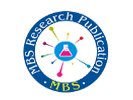IJRMBS | Volume 9,Issue 6,June,2023
INFLUENCES OF YOGA ON PSYCHOLOGICAL DISTRESS AND WELL-BEING IN UNIVERSITY STUDENTS
Abstract:-
Ashtanga is a classic style of yoga that focuses on controlling breathing and intense activity to create a contemplative state via physical practice. InIn this study, we looked into Ashtanga yoga's efficacy as a psychological well-being intervention. During a 9-week period, 18 Ashtanga yoga courses were provided to nonclinical volunteers twice a week. Prior to the start of classes, after the tenth lesson, and after the last class, the volunteers completed measures of depression, anxiety, affect, self-esteem, and interpersonal functioning. Thirteen of the forty-four participants who made at least one class attendance completed all three measurement points, averaging eleven classes (range = 5–18). The effects of yoga on university students' psychological discomfort and well-being are investigated in this study. This study explores the possible advantages of introducing yoga into students' lives because the pressures of academic life might lead to elevated stress levels and emotional difficulties. Using a mixed-methods approach, the study combines qualitative information from interviews and self-reporting with quantitative measurements including psychological distress ratings and well-being assessments. Through an analysis of the effects of consistent yoga practice on emotional stability, stress reduction, and general mental health, this study intends to provide important new understandings regarding the potential application of yoga as a comprehensive intervention for psychological health promotion in the context of higher education.
Need PHD Research Writing Help?

